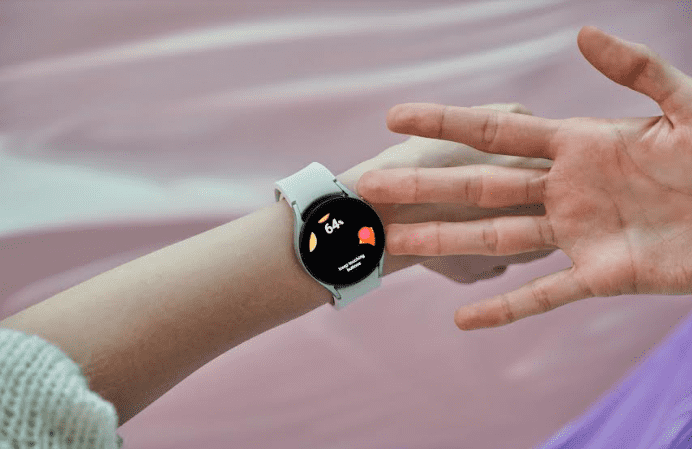Gurugram, India – November 15, 2022 – Samsung today announced that Galaxy Watch has brought another revolution in the digital health and wellness space with a ground-breaking Bioelectric Impedance Analysis sensor. A joint research team from Louisiana State University, Pennington Biomedical Research Center, and the University of Hawaii Cancer Center performed a study to assess the accuracy of body composition data gathered from smartwatches. The study published by the American Journal of Clinical Nutrition (AJCN) reveals that Samsung Galaxy Watch could contribute to preventing or reducing obesity in its users. The study also found that Galaxy Watch devices were accurate in measuring body composition, with a precision comparable to laboratory results.
The study underscores the promise of wearables in helping prevent or reduce obesity, a condition that is responsible for approximately 60% of cardiovascular disease deaths.
Considered to be a chronic disease, obesity develops over time because of overnutrition and lack of physical activity. The ability to self-monitor one’s behavior, particularly with data derived from wearables, improves the user’s understanding of their behavior patterns, which resulted in an increase in physical activity in nearly 60% of users.

This study highlighted the comparison of the body composition measurements taken by Galaxy Watch4 Bioelectrical Impedance Analysis (BIA) sensor with a clinical measure of a dual-energy X-ray absorptiometry (DXA) scan and a duplicate laboratory-grade octapolar bioelectrical impedance analysis.
The results demonstrated that Galaxy Watch’s BIA measurement had between a 97-98% correlation with the two reference devices on fat-free mass, fat mass, skeletal muscle mass, basal metabolic rate, and total body water. The study results show that data from a wearable bioimpedance device can help users monitor their body composition and improve their health by changing their diet and exercise behaviors.
It also shows that Galaxy Watch can help users get a more accurate understanding of their health. The accuracy of the data means users can adjust their own behavior. This allows users to better monitor their health at home (between medical interventions), when traveling, or when working remotely where other assessments may not be available.
In addition, a randomized control trial found that wearables decreased sedentary time by an average of 68 minutes, while a meta-analysis of the effects of wearable activity trackers showed an increase of more than 2500 daily steps.